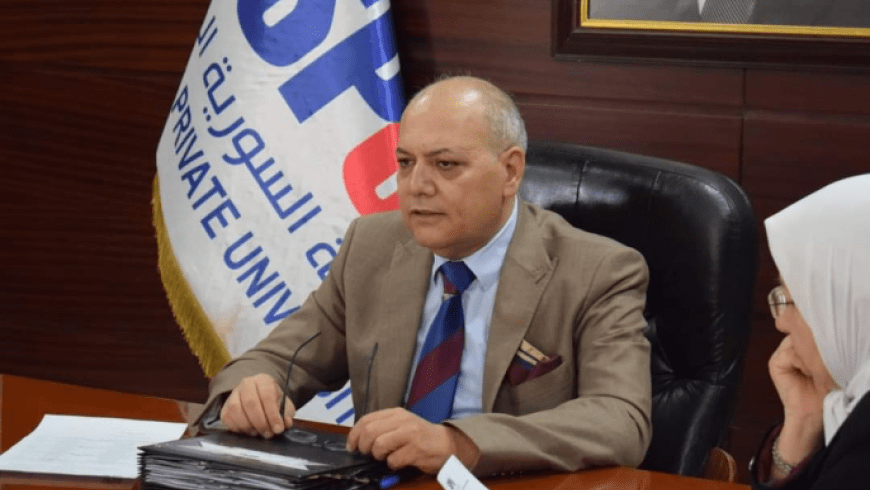The appointment of Mohammad Ghazi al-Jalali as Syria’s new Prime Minister, following a presidential decree by Bashar al-Assad, has stirred much debate. However, it is clear that this change in leadership alone will not suffice to lift the country out of its deepening crises.
Syria faces overwhelming economic, social, and security challenges that cannot be resolved by any government without undertaking profound political reforms. The Assad regime is in the midst of an existential crisis, one that it cannot overcome as long as it continues to rely on internal repression and external support without offering real solutions to the Syrian people’s suffering.
Many residents in regime-controlled areas cling to the hope that Jalali’s extensive experience in engineering, management, and economics might help him navigate the country out of its current economic quagmire. The collapse of the Syrian pound, skyrocketing prices, and the specter of an economic breakdown have left Syrians desperate for any sign of relief. However, expectations that Jalali might bring about significant change seem overly optimistic, especially given the regime’s track record.
Jalali’s appointment is a political move, symbolizing the Assad regime’s persistence in following the same strategies that have kept it in power. By maintaining a tight circle of loyalists and recycling familiar faces, the regime avoids making meaningful changes to its political structure or addressing the demands for reform from the Syrian people. This reshuffling reflects internal deliberations between Assad and Baath Party leadership, signaling a continuation of the regime’s tactics rather than a break from them.
Economically, Syria remains in a state of collapse. Over 70% of the population lives below the poverty line, and actual unemployment has soared to over 37%, with disguised unemployment rates exceeding 85%. This means the majority of the workforce is not contributing to any meaningful economic production. Under such dire circumstances, no new government can effect real economic transformation without deep political reforms.
Jalali is expected to implement privatization policies favoured by the regime. However, these efforts are likely to benefit the ruling elite and its associated companies rather than addressing the needs of the broader population. Such privatization will further entrench the regime’s control over critical sectors, exacerbating economic inequality and deepening the divide between the political elite and the general population. These policies are not designed to foster an economic revival but to consolidate the regime’s grip on power.
Massive debt burden
Moreover, Syria’s reliance on financial and military support from Iran and Russia has placed the country in a state of economic and political dependency on these two allies. This foreign aid, largely directed towards propping up the regime militarily, has done little to improve the economy or the lives of ordinary Syrians. Instead, it has added to the country’s massive debt burden.
Control over Syria’s natural resources, particularly oil, gas, and key agricultural products like wheat, is another obstacle. Much of these resources are controlled by Russia, Iran, and the Syrian Democratic Forces (SDF) in the northeast, making it nearly impossible for any new government to achieve economic recovery. While Jalali may seek to expand the regime’s relations with these international powers, he is unlikely to free the Syrian economy from this foreign stranglehold without making major political concessions—concessions the regime is unwilling to make.
One of the new government’s most pressing challenges will be improving living conditions in regime-controlled areas such as Latakia, Tartous, and Sweida, which are plagued by poverty, crime, and a lack of basic services. Despite the widespread demand for salary increases and economic relief, the current economic environment makes it virtually impossible for the new government to meet these demands.
The rise in prices, alongside inflation rates exceeding 100%, has left most Syrians unable to afford basic necessities. As a result, promises of improved living conditions remain hollow, with little chance of meaningful action.
On social media, reactions to Jalali’s appointment have ranged from cautious optimism to deep cynicism, with many dismissing the government reshuffle as merely a cosmetic change. Popular comments like “Titi Titi, like you left, like you came back” reflect the prevailing sense of frustration, as many Syrians believe that the change of leadership will not alter their grim reality.
Ultimately, Jalali is unlikely to have the tools necessary for meaningful economic recovery. Without political reforms, even the most competent economist would struggle to fix Syria’s profound economic ailments. The country remains trapped in a cycle of foreign dependency, crippling sanctions, corruption, and war, with little hope for improvement without sweeping political change.
Russia and Iran’s control over Syria’s key economic resources, alongside their demands for repayment of war-related debts, only further complicates the situation. Iran alone is demanding $50 billion, while Russia’s expenditures in Syria—estimated at $3-4 million per day—remain a substantial burden. These debts, coupled with foreign military support, have only deepened Syria’s dependence and stifled its economic recovery.
Adding to this is the impact of U.S. and European sanctions, particularly the “Caesar Act,” which has contributed significantly to the collapse of the Syrian pound. Meanwhile, 70% of Syria’s oil reserves remain outside regime control, as do the country’s most fertile wheat and cotton lands, which are under the authority of the SDF.
The regime’s inability to control its borders and land crossings, despite attempts at agreements with Turkey under Russian mediation, further underscores the regime’s weakening grip on the country’s economic assets. Compounding these issues is the flight of expertise and capital from Syria, driven by the regime’s pervasive corruption.
In conclusion, no government, regardless of its composition, can address Syria’s economic crisis without addressing the underlying political issues. Without a comprehensive political process that ends the ongoing civil war, restores social justice, and tackles corruption, any hope for economic recovery will remain out of reach.
This article was translated and edited by The Syrian Observer. The Syrian Observer has not verified the content of this story. Responsibility for the information and views set out in this article lies entirely with the author.


